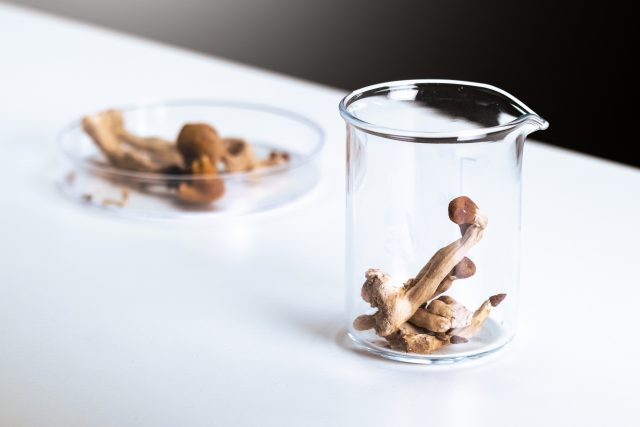This website uses cookies so that we can provide you with the best user experience possible. Cookie information is stored in your browser and performs functions such as recognising you when you return to our website and helping our team to understand which sections of the website you find most interesting and useful.
Could magic mushrooms have ‘greater societal value than alcohol’?
Psilocybin, the main ingredient in magic mushrooms, may be of “greater societal value than alcohol,” according to a recent report.

In a deep dive comparison into the differences between the two substances, Psychology Today outlined how, despite its current legal restrictions, Psilocybin is “showing potential in clinical research for treating various mental health disorders”.
The report pointed out how both alcohol and Psilocybin share a commonality in that they can both cause alterations in consciousness, but they have distinct differences in their chemical structure and effects on the brain which also means differences in their “impact on health and wellbeing”.
The psychology-specialist title indicated that, taking this into account, “from a health and therapeutic perspective, psilocybin may be of greater societal value than alcohol, especially considering the emergent interest in its applications for depression, anxiety, PTSD, and end-of-life distress”.
According to the findings, although there is wider social acceptance of alcohol, it has the potential to be misused. Ironically, “the magic from the mushroom” could assist with this die to “some of the most promising new psychiatric research advances psilocybin as a viable treatment for alcohol use disorder”.
Looking at the two substances as a comparison, the report reiterated how alcohol (ethanol) primarily affects the central nervous system by enhancing the effects of the neurotransmitter GABA (gamma-aminobutyric acid).
As a depressant, it slows down brain function and neural activity. Comparatively, Psilocybin is a more complex molecule that reportedly works by affecting the serotonin receptors in the brain, particularly the 5-HT2A receptor. As a result, experts identified how it can cause changes in perception, mood, and thought, often referred to as psychedelic or hallucinogenic experiences.
In terms of physical and psychological effects, the report described how alcohol can cause decreased inhibition, impaired judgment, poor motor coordination. Plus, Psilocybin can cause visual and auditory hallucinations, poor motor coordination, an altered sense of time, spiritual experiences, and introspection.
However, in terms of the health risks, while “alcohol still has a risk of addiction and can cause serious health problems,” comparatively, “Psilocybin is generally considered non-addictive and has a low risk of overdose” and “medical problems from psilocybin use are rare”.
The report pointed out how alcohol is legal in most parts of the world for adults and is considered an important part of social, cultural, or religious practices in a majority of cultures and countries around the world, while Psilocybin is currently still illegal in the US, Canada, and many other countries despite there being “a growing movement to re-evaluate its legal status, particularly for mental health”.
Ultimately, it concluded that while both substances alter consciousness and can affect mood and perception, they do so through very different mechanisms. Added to this, it identified how alcohol has a “high potential for abuse” while, conversely, “psilocybin mushrooms have been used by traditional healers in Central and South American for centuries” and research is ongoing.
Related news
Did Brexit kill the booze cruise?

